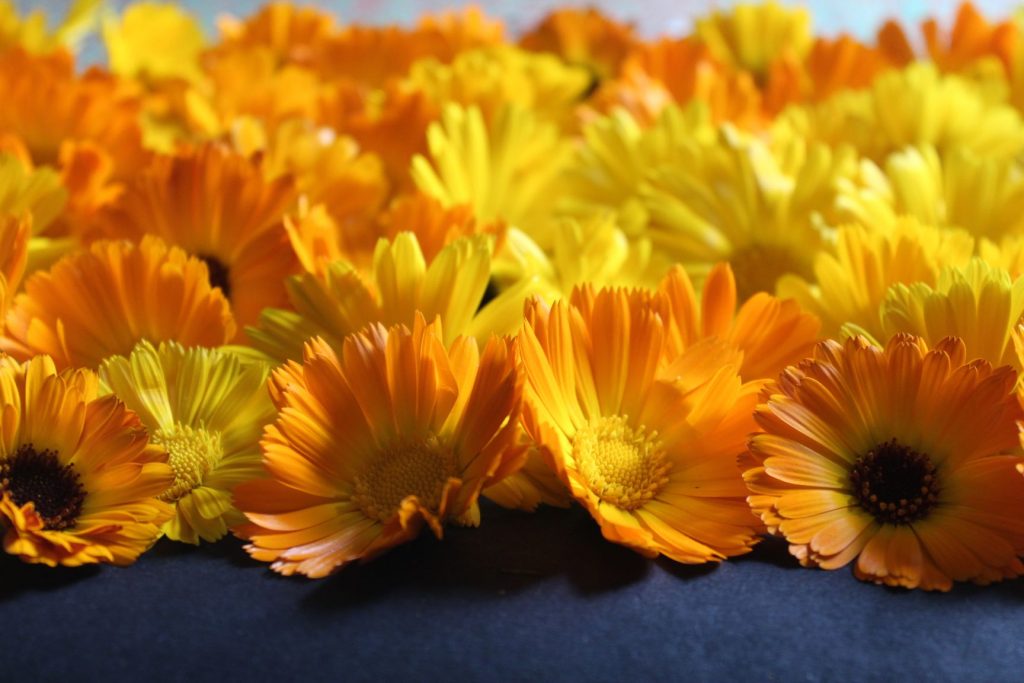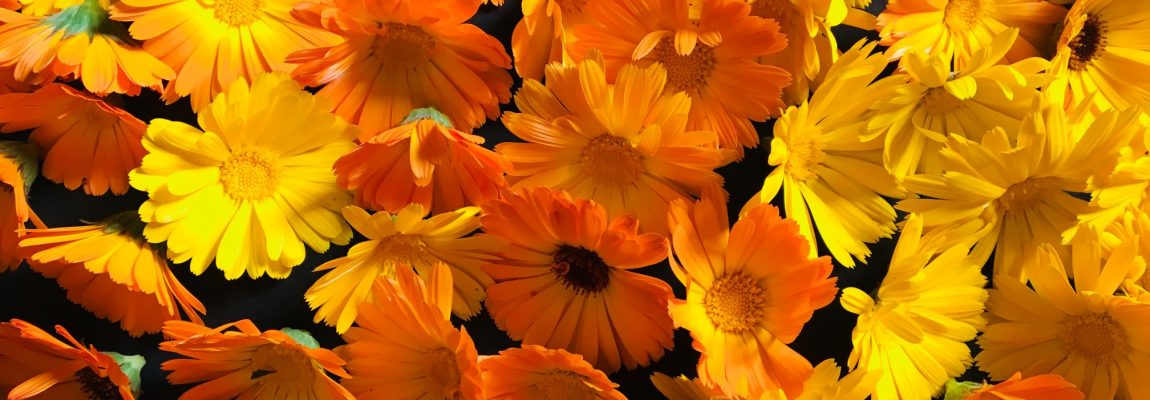Let’s take a virtual walk !!
Imagine!! you are sitting in your balcony. It is spring time and little bit of heat is coming from the sun. The balcony is accompanied by a valley filled with beautiful flowers and butterflies pollinating on them. Everywhere
CALENDULA
Calendula which resembles marigold but is different from the common marigold because you can add this in your salad also. Yes!! Calendula with scientific name- Calendula officinalis is a short-lived perennial plants which prefers cooler seasons of spring and fall. It brings eye soothing, cheery and bright colors such as orange and yellow and are also available in subtle shades of pink and cream. It can grows up to 1 to 2 feet in height with a similar spread. This is also called as POT MARIGOLD. If you want your garden to be cheery and blooming, then its worth your time and garden.Diverse Nature of CALENDULA
- Calendula has a long history of medicinal and cosmetic use. It has abundant powerful anti-inflammatory, anti-viral, and anti-bacterial properties in its petals and is often used to soothe a long list of skin ailments such as rashes, cuts, fungal infections and bee stings and many more.
- Calendula, shows promising results regarding its potential use in cancer management.
- This flower can be used for multiple purposes for skin care from lotions, creams, mouthwash, DIY shampoos to perfumes.
- Its petals also play the role of coloring agent for fabrics, foods and cosmetics. So we can see, it contributes to more of color. They are used to add color to fresh salads, bread and cakes. One can find numerous food combinations with calendula.
- The flowers also provide nectar and pollen that attract pollinators such as bees and butterflies and beneficial insects such as ladybugs.


CALENDULA TEA Recipe
Step 1: Take 1 cup pf water of water in a bowl which you can use to heat.
STEP 2: take some dry calendula flowers in the the ration of 1 tablespoon fresh flowers.
STEP 3: start boiling. Allow steeping for 9-10 minutes.
STEP 4: You can add honey as per taste.
STEP 5: Refrigerate for up to a week.
Now you can enjoy this tea that soothes internal mucous membranes. Herbalists confirm that calendula tea soothes sore throats and treat ulcers. It also helps in healing urinary tract infections.
GROWING CALENDULA
We have given you enough reasons to decide why you must own calendula in your garden. You can grow these along with your potato and tomatoes as it helps to deters insects. You can also grow them in pots and containers. So here are some steps to grow calendula at home:
- In order for any plant to flourish to its full potential, it requires the right conditions. The soil is all important. It prefers loose and rich soil amended with compost with a pH of 6-7.
- Like humans, calendula demands plenty of water but avoid overwatering.
- Calendula prefers full sunshine, therefore, place the plant in a spot receiving 6-8 hours of sunlight.
- Collect calendula flowers late in the morning when they are fully open and the dew has dried. Pick the complete flower at full bloom. Flowers will re-bloom in about 2 weeks. You can also collect seeds when fully mature and dry.


You can enjoy these dry calendula flowers in tea, oil infusions, scrubs, lotions and tinctures for up to a year to make the best of their culinary benefits.
In the beginning, we went on a virtual ride to experience the bliss of nature, the idea behind this exercise was to make you realize the subtle but powerful effects of nature. By just imagining it allured us and gave a sense of relief from a busy life. Nature possess this ability to reduce stress and make us flexible.
